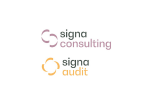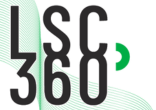
Taking stock of international media psychology research
The University of Luxembourg will host the international conference “Media Psychology 2023” from 6 to 8 September on Belval campus.
The branch media psychology focusses on the interaction of human behaviour with media and technologies. In a rapidly evolving environment and with increased access for young or vulnerable people to media, up-to-date research on influences and behavioural patterns is essential. Indeed, research findings can inform education, social and labour policies, but accessible information can also help public audiences in guiding media behaviour for themselves, their families or businesses. At the crossroads of psychology, sociology, media and cognitive sciences, this research branch offers a vast pool of research questions.
This year’s conference focusses on inclusion and diversity in media psychology. In addition to keynote speeches, presentations and thematic panels, the conference offers workshops for PhDs.
For the full programme, visit Media Psychology 2023.
Prof. André Melzer, the conference main organiser, provides an insight in current issues and trends in this field.
This year’s conference focusses on inclusion and diversity – why were these perspectives chosen ?
Inclusion and diversity are socially important issues. Both globally, but also here in Luxembourg, there are still many inequalities in terms of gender, race, disability, sexual orientation and many other aspects. Research in media psychology focuses on the role of the media and its use and impact in terms of portraying people who do not fit into society’s white, cisgender, heterosexual, able-bodied and neurotypical “norm”. Studies show the negative effects that discriminatory representation in the media in particular can have. Therefore, we decided to focus this year’s conference on inclusion and diversity, however not only to combat the negative effects of discrimination, but also to highlight the inherent strengths of diversity.
What are current research perspectives at the University of Luxembourg ?
Research on inclusion and diversity play a significant role at the University of Luxembourg, and by no means only in a media psychology context. For example, how do we perceive people in social networks who do not perfectly fit the social norm, for instance because they are overweight or do not conform to the traditional male-female gender distinction ? What role do prejudices and stereotypes play here ? Can video games be used meaningfully to relieve stress ? And how must robotic systems be constructed in order to use them meaningfully for therapy in the context of autism ? Colleagues work closely with the Fondation Autisme Luxembourg on this topic. It is important that the research results are passed on to the people in Luxembourg, for example in presentations, expert reports, or workshops. Therefore, we often work together with NGOs and ministries here in Luxembourg, some of which also support us financially.
AR, VR but also AI and tools like ChatGPT… Is it difficult to keep up with the constant evolution in media technologies ?
Artificial intelligence has already been used for many years. However, the fact that people can now use this technology in everyday life has not been the case for long. This poses great challenges not only for users, but also for schools, universities and the work environment. Technological development is always faster than psychological research, which studies the effects of technology. Compared to other psychological disciplines, however, media psychology is close in time to media developments and therefore also evolves very dynamically. Also, media psychology makes valuable predictions about how people may benefit from technological developments. How can artificial intelligence be successfully used in counselling and therapy ? When do people trust artificial intelligence, and when not ? At the Media Psychology 2023 conference, the latest findings on the topics of artificial intelligence and trust as well as ChatGPT will be presented in two sessions. These topics will play an increasing role in society, but also in media psychology research.
Info from the University of Luxembourg





















